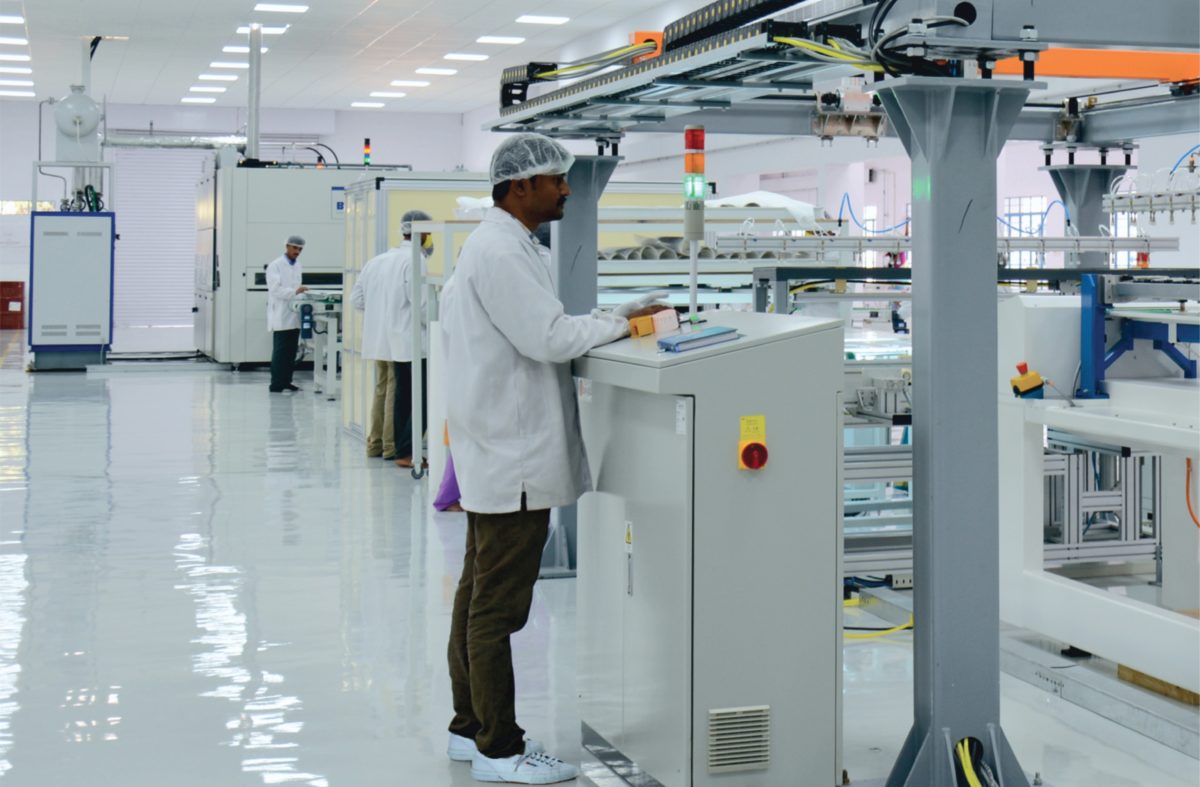The Indian solar manufacturing industry is elated with the inclination of The Indian Cabinet Committee on Economic Affairs (CCEA) towards boosting domestic module and cell manufacturing in the country, by allocating 12 GW of PV projects exclusively to domestic players.
Talking about the overall impact, Sunil Rathi, director, Waaree Energies said: “The move is expected to have a dampening short-term and a positive long-term impact on the industry.”
“While on the face of it, the proposal is set to provide relief to domestic solar manufacturers for the next four years, even with immediate implementation, the on-ground reality indicates a gestation period of at least a year till this proposal actually yields operational benefits. The move fails to provide the much needed immediate support to the sector, due to which mid-scale players may not be able to sustain the pressures for the next year.”
On the up side, “this proposal is bound to attract foreign investment in the long run. We foresee players from China and Malaysia setting up manufacturing hubs in India, thus furthering the ‘Make in India‘ initiative,” he added.
“Moreover, while there are ample module manufacturers in the country to meet the government demands, the proposal would provide impetus to existing and new players to venture into cell production, thus creating job opportunities and enhancing the GDP contribution in the long run,” Rathi said.
Waaree Energies has solar PV module manufacturing capacity of 1.5 GW at its plants in Surat and Vapi in Gujarat.
The proposal
The CCEA has approved a proposal for state-run generators to set up 12 GW of solar projects using domestically-made equipment over the next four years.
Under the second phase of the Central Public Sector Undertaking Scheme—overseen by the Ministry of New and Renewable Energy—the government will provide viability gap funding support of Rs8,580 crore ($1.2 billion) through central and state entities for the projects, which would be expected to generate investment of Rs48,000 crore and support Indian manufacturing plants, the CCEA said.
“The scheme will mandate use of both solar photovoltaic cells and modules manufactured domestically, as per specifications and testing requirements fixed by the Ministry of New and Renewable Energy,” a CCEA statement added.
This content is protected by copyright and may not be reused. If you want to cooperate with us and would like to reuse some of our content, please contact: editors@pv-magazine.com.









By submitting this form you agree to pv magazine using your data for the purposes of publishing your comment.
Your personal data will only be disclosed or otherwise transmitted to third parties for the purposes of spam filtering or if this is necessary for technical maintenance of the website. Any other transfer to third parties will not take place unless this is justified on the basis of applicable data protection regulations or if pv magazine is legally obliged to do so.
You may revoke this consent at any time with effect for the future, in which case your personal data will be deleted immediately. Otherwise, your data will be deleted if pv magazine has processed your request or the purpose of data storage is fulfilled.
Further information on data privacy can be found in our Data Protection Policy.